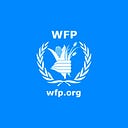How Denmark and Sweden changed the lives of two women in Ethiopia with small business loans
Eradicating hunger and malnutrition is one of the most significant and complex challenges of our time, and the path to a Zero Hunger future requires several approaches. In addition to maintaining food and cash distributions where needed, WFP is investing in resilience and livelihood activities which allow people to help themselves. In Ethiopia, WFP is working with partners to help boost livelihood opportunities for families keen to secure their solution to their food insecurity.
Story by Edward Johnson
In one of Pinyudo’s refugee camps, in Western Ethiopia, there is a makeshift table draped with a white woven sack. Once it was used to hold food provided by the World Food Programme (WFP) but since then it has been sliced lengthwise and is now covering 15 meticulously stacked piles of dried fish which once swam in the rivers of Gambella Region.
The fish belongs to Ngayong, a female graduate of a small business training scheme run by WFP’s partner Concern Worldwide. In exchange for attending and participating in regular seminars on financial management, and after developing a business plan, Ngayong and 203 other women in Pinyudo recently received a start-up loan of 2,000 Ethiopian Birr (a little over US$ 50).
In July 2020, WFP started a new five-year Country Strategic Plan (CSP) in Ethiopia which not only includes the provision of emergency relief but also numerous resilience-building activities. The triple nexus was a guiding tenet of the CSP formulation. Emergency food assistance saves lives, and sustainable livelihoods and enhanced food systems change lives. Both humanitarian and development approaches drive WFP’s CSP in Ethiopia because together, they mitigate risks and fragility, contribute to community development, and support broader efforts to build peaceful and stable societies.
Ngayong had run a business in Sudan before she had to flee, but with little-to-no cash before now, she was unable to restart her business. However, with the start up loan from WFP she is now buying fresh fish, drying them and selling them in bundles of four for 10 Birr, making a profit of 500 Birr each time (US$13).
“I’m saving enough that it makes me happy again,” Ngayong explained. “Now I can see the future, and I’m happy again.”
Anyone not enticed by Ngayong’s dried fish has the option to of home-made biscuits and freshly brewed tea at Cholla’s place. She’s also invested her money into a small enterprise outside her home in Pinudo’s Village 17.
That’s where Sudanese Cholla, her husband, mother and seven children settled after fleeing conflict. For the first time in a year, she’s now able to make ends meet by selling refreshments to passers-by.
Cholla doesn’t have much time to talk. She’s a busy woman with a strict routine that begins at sunrise when the sun is less intense. She starts at first light to make biscuits and brew pots of sweet tea.
“As soon as people come for their morning tea, it’s time to start making lunch for the next group,” explained Cholla.
She partially credits her business popularity to the delicious biscuits, but also because her prices are competitive: one biscuit and one cup of tea cost five Birr (13 US cents). On average, she’s making a profit of 500 Birr(US$13) each day and is saving it all for her next venture, a mini supermarket with shade from that harsh sun.
“The loan was small, but the confidence I’ve gained is as big as the sun. I’m confident this is how I’ll be able to change my family’s life for the better.”
The course is one of numerous livelihoods activities run by WFP and its partners in Ethiopia, which are currently funded by SIDA and the Government of Denmark. These courses are designed to give participants from Ethiopia’s most vulnerable communities new skills for future employment opportunities, wherever they are.
Find out more about WFP’s work in Ethiopia.
